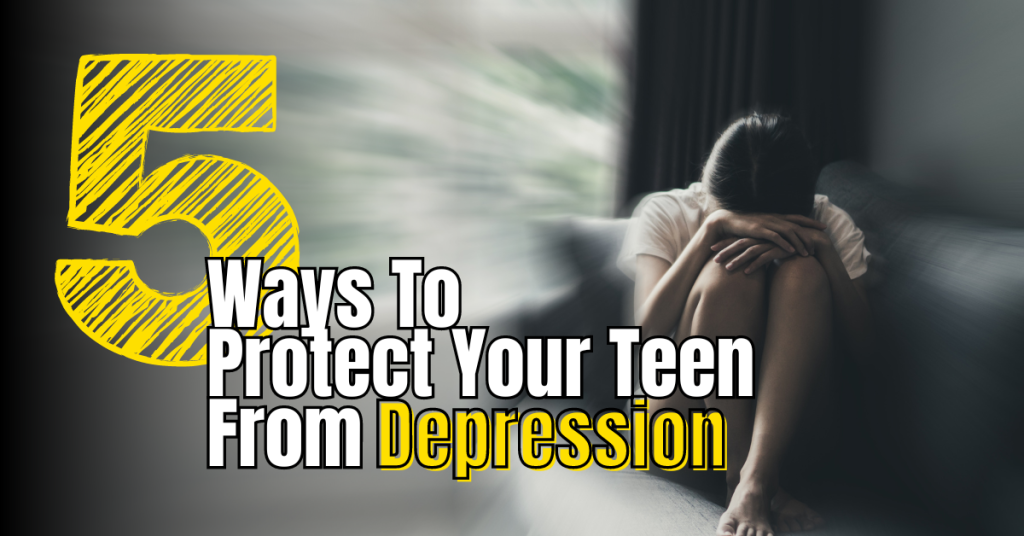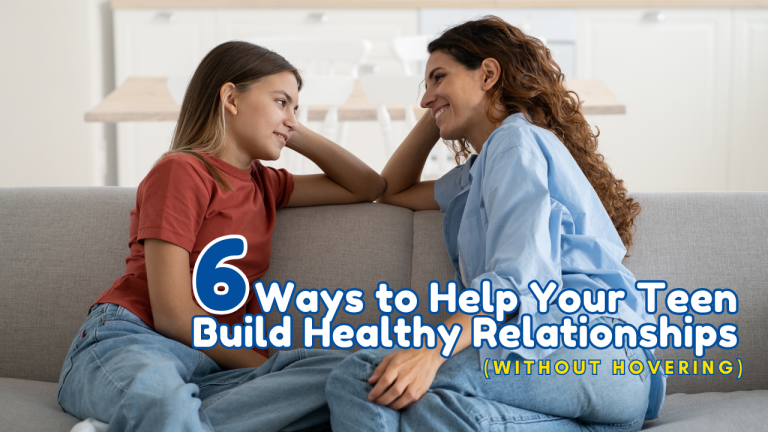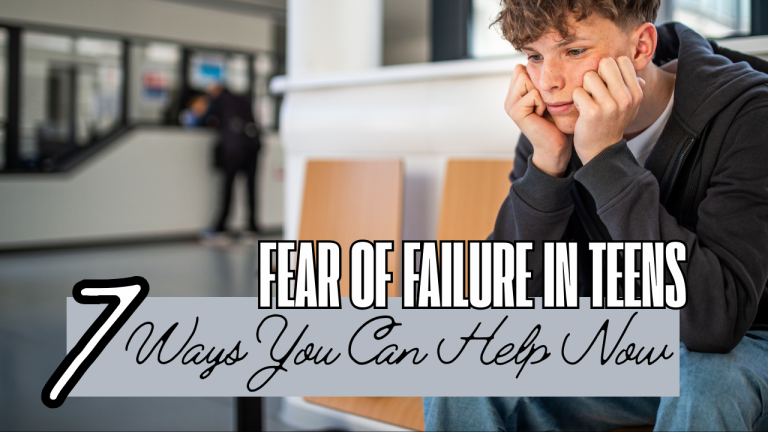It’s too serious to ignore.
The rate of teen depression has reached record-breaking heights, with a whopping 59% increase between 2007 and 2017 alone. And that was before the detrimental effects of the COVID lockdowns, which impacted teens significantly more than any other group.
Today, almost 6 in 10 teen girls (nearly 60%) feel a persistent feeling of sadness or hopelessness, with 30% of those girls having seriously considered committing suicide. Boys, too, have faced increased rates of depression and suicidal thoughts.
These statistics are troubling, but at House of Hope, we know from experience that there is hope for every teen and every family.
That’s why we’re sharing 5 Ways to Protect Your Teen from the Depression Epidemic—to encourage and empower you to counter the negative influences in the world and help your teen stand firm.
1. Protect Your Teen from Isolation
It’s no secret the devil uses isolation to influence thoughts and emotions away from the truth of God’s Word. That’s why the Bible is so clear about our need for one another (Proverbs 18:1; Ecclesiastes 4:9-10; Ecclesiastes 4:12; Hebrews 10:24-25).
The damaging effects of isolation were exasperated with the introduction and ever-increasing use of smartphones. Kids and teens retreat to an online world that has replaced human interaction and the critical development of relationships.
Enter COVID lockdowns. The pandemic was hard on everyone—but became catastrophic for kids and teens. Social interaction was all but gone without in-person school attendance, summer jobs, school sports, and extra-curricular activities. Depression set in quickly and more intensely among America’s youth.
Though life has returned to normal in many ways, the lingering effects of isolation have continued.
Action Steps:
- Encourage outside activities. Talk to your teen about getting involved in extra-curricular activities and spending time with friends. An outside job is also a great way to engage in a social setting with the added bonus of making some cash!
- Limit time alone. Everyone needs a certain amount of time to themselves, but too much is not healthy. If you notice your teen is locked away in their room for hours at a time, it’s time to intervene. And it’s okay to say, “It’s time to come out of your room for a while and spend time with the family.”
- Create family time. Your teen needs more than time with friends—they need you! Plan fun family outings to a favorite restaurant, a bowling alley, kayaking, or any other favorite activity. Or how about a family board game or even playing one of their favorite video games together? And don’t neglect to plan fun family vacations—it builds a special bond with your teen and creates memories that last a lifetime. You may even see that smile that’s been missing for so long!
- Eat dinner together. Family dinners have been found to prevent depression and even drug use among teens. Make having dinner together at least four times weekly a priority for the maximum benefit.
Need some conversation starters? Grab our free Teen Talk Conversation Cards!
2. Nuke Screen Addiction
As we discussed in the last point, screen addiction is a significant player in isolation, and with teens spending a jaw-dropping nine hours each day glued to a screen, addressing this problem is paramount.
Here’s something you need to know—you don’t have to give your child or teen a smartphone. Revolutionary, right? Not only should you consider delaying offering up this highly addicting device to your kids and teens, but it’s worth reconsidering giving them one at all.
If you do feel the need to provide a smartphone to your teen, there are ways to combat the dangers associated therein that will help you protect your teen from depression.
Action Steps:
- Monitor smartphone use. You can install apps on your phone that will control the other phones in your network. This allows you to monitor what is being looked at (another parenting must) and set time limits for internet and social media use.
- Set a curfew. Many families have a basket where all cell phones are gathered at a particular time each night—including Mom and Dad! This promotes healthy boundaries for everyone and sets an example for your teen.
- Make plans. Teens today default to screens when they’re bored. So make plans! Go on an outing, volunteer in the community, or encourage your teen to get a job.
3. Instill Hope in Your Teen
The world (especially public schools) is not a source of hope for your teen. Psychologists have found that teens are increasingly distressed by climate change, racism, and inequality—all emphasized in the public school system and mainstream media.
Social media and news sites pump discouragement into our teen’s smartphones 24/7. And music and movies? More of the same.
You can instill hope in your teen and protect them from depression in many ways, including the words you speak to them daily (see 10 Things You Should Say to Your Teen) and how you view the world. Do you talk doom and gloom all day? Do you gripe and grumble? Knowing these things will hurt your teen, will you work to become a more positive person? It will be good for you, too!
Here are some other ways to instill hope in your teen.
Action Steps:
- Celebrate! Make a big deal out of…well, everything! Throw a party for birthdays and graduations. Decorate for holidays—and not just Christmas! Decorating for and celebrating Easter, Fall, Valentine’s Day, and any other holiday is a fun way to give your family something to look forward to. And be sure to roll out the red, white and blue for patriotic holidays, too!
- Attend church services. A Harvard study found that children and teens who attend church services with their families are happier than those who do not. They were also more likely to participate in community service and avoid drug use. Another study by Pew Research found that people who attend church and participate in religious practices like Bible reading and prayer are more likely to describe themselves as “very happy.” Beyond that, attending church as a family has gives young people a sense of belonging, which combats depression.
4. Help Your Teen Find Purpose
Hope and purpose are found in a personal relationship with Jesus Christ. A lack of purpose is a huge factor in thoughts that lead to depression. You can protect your teen from depression by helping them view life through a positive lens. A few things that bring purpose include religion, patriotism, serving in the community, joining a club, and getting a job.
Action Steps:
- Find a good youth group at a local church. Teens can find a strong sense of community among their peers and hear a message of hope at the same time.
- Teach patriotism. Public schools no longer teach patriotism, which provides all Americans—especially our youth—with a strong sense of pride and purpose. At the dinner table, tell stories about our Founding Fathers and other heroes. If you have relatives who served in the military, be sure to share as much as you can with your teen. Celebrate patriotic holidays, fly and American flag outside your home and talk about how blessed we are to be Americans!
5. Be Present
Many parents believe that once their children are old enough to be left at home alone, they no longer need their parents as much.
This could not be further from the truth.
Dr. James Dobson has repeatedly emphasized the importance of parents being home and available during the teenage years. In fact, he has noted that it is as important, if not more so, than being home during the toddler years.
Don’t let the mumbled responses or eye-rolling fool you—your teen needs you now more than ever. You can protect your teen from depression simply by choosing to be present.
Action Steps:
- Do everything you can to be home as much as possible for your teen. Knowing you’re there when they need you is a big deal even if they have activities and homework.
- Prepare an after-school snack for your teen each day and be available to chat if they’re open to it.
- Forego overtime work or travel and make family time a priority.
- Make family dinner non-negotiable.
We hope these 5 Ways to Protect Your Teen from Depression will inspire you to take action steps toward creating a life filled with purpose, hope, healthy boundaries, and precious family time. You are vital to ensuring your teen gets through these often-tumultuous years with flying colors. You can do it!









